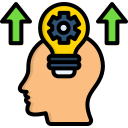
How Open Source Projects Improve Coding Abilities
Open source projects have become a cornerstone for aspiring and professional developers alike, offering a unique platform for learning, collaboration, and growth. By engaging in these projects, coders not only contribute to real-world software but also sharpen their skills in ways that traditional learning environments may not provide. The openness and transparency of such projects create opportunities to observe, understand, and participate in software development at various levels of complexity. Whether you are writing your first lines of code or refining advanced programming techniques, open source projects present a dynamic environment to expand your coding abilities and build meaningful connections within the developer community.
Understanding Codebases
Jumping into an open source project often means working with unfamiliar and sometimes large codebases. This experience develops the essential skill of reading and navigating code written by others, which is vital in most real-world programming jobs. Developers learn to trace logic, comprehend architectural decisions, and quickly adapt to diverse coding standards and paradigms. This kind of exposure broadens a programmer’s understanding of how complex systems are structured and maintained over time, making them more adept at handling legacy code and integrating new features without disrupting existing functionality.
Encountering Diverse Technologies
Open source projects rarely limit themselves to a single language or set of tools. As a contributor, you may be exposed to front-end, back-end, and DevOps technologies all within the same repository. This diversity accelerates your learning, introducing you to technologies and methodologies you might not encounter through formal education or personal projects alone. You also gain exposure to industry trends and common stacks, giving you a competitive edge and a broader technical perspective to draw upon in your professional journey.
Previous
Next
Participating in Code Reviews
Code reviews are an integral part of most reputable open source projects. When you submit a contribution, your code is often scrutinized by maintainers and peers who provide detailed feedback. This process can reveal flaws in logic, highlight more efficient solutions, or point out edge cases you might have missed. Regular participation in code reviews not only improves your own coding standards but also teaches you how to review others’ work constructively, an invaluable skill in collaborative environments.
Embracing Mentorship and Guidance
Open source communities are often rich with experienced developers eager to share their expertise. Interacting with these mentors, whether through direct communication or by observing their contributions, provides a wealth of learning opportunities. You learn how seasoned professionals approach problems, architect solutions, and maintain project health. This mentorship can be formal or informal, but either way, it accelerates your understanding of complex concepts and promotes personal and professional growth.
Learning From Diverse Perspectives
Contributors to open source projects hail from around the globe, each bringing unique experiences, cultural backgrounds, and problem-solving approaches. Engaging with this diverse community broadens your own perspective, challenging your assumptions and encouraging you to question established norms. Through collaborative discussions and feedback, you learn to appreciate different viewpoints and incorporate varied approaches into your own workflow, resulting in more innovative and flexible coding practices.
Previous slide
Next slide

